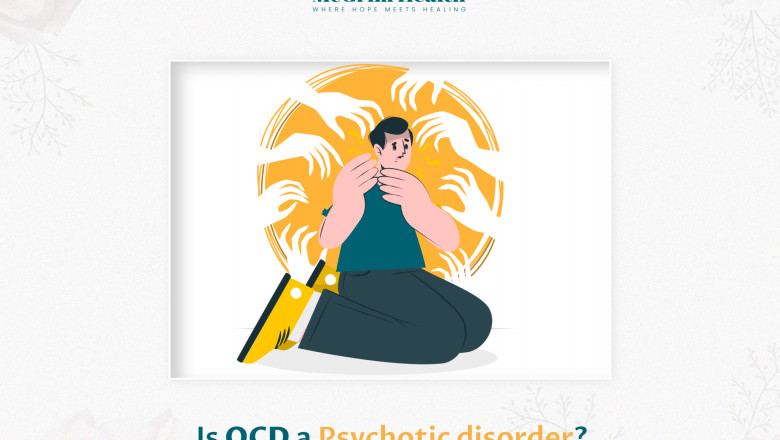views
Obsessive-Compulsive Disorder (OCD) is a common and often misunderstood mental health condition. One of the frequent questions people ask is, "Is OCD a psychotic disorder?" The simple answer is no. OCD is not classified as a psychotic disorder, though it shares some features with other anxiety-related conditions that can be quite distressing.
What is OCD?
OCD involves persistent, intrusive thoughts (known as obsessions) and repetitive behaviors (known as compulsions). These thoughts and actions are typically irrational, but individuals with OCD feel an overwhelming need to perform these compulsions to alleviate their anxiety. While these behaviors can be consuming, people with OCD are generally aware that their thoughts and actions don’t reflect reality, which sets it apart from psychotic disorders.
Psychotic Disorders vs. OCD
Psychotic disorders, such as schizophrenia, are characterized by a loss of touch with reality. People with psychosis may experience hallucinations or delusions and have difficulty distinguishing between what is real and what is not. OCD, on the other hand, does not involve these symptoms. It is classified as an anxiety disorder, not a psychotic one. Individuals with OCD typically do not lose touch with reality. Instead, they experience overwhelming hyperstimulation anxiety, a state of intense arousal, triggered by their intrusive thoughts and compulsions. This heightened anxiety can lead to extreme distress, but it does not signify a break from reality.
Managing Hyperstimulation Anxiety in OCD
One of the key aspects of OCD is hyperstimulation anxiety, which occurs when individuals experience a heightened sense of fear and nervousness. This can often be triggered by their obsessive thoughts or compulsive behaviors. For those with OCD, this anxiety can be intense and debilitating, interfering with their daily life and mental well-being.
The good news is that there are treatment plans for anxiety that can help individuals manage these symptoms. Cognitive Behavioral Therapy (CBT), specifically Exposure and Response Prevention (ERP), is highly effective in helping individuals confront their fears and reduce compulsive actions. For some, medication may also be an essential part of the treatment plan to help regulate anxiety and obsessive thoughts.
Finding Support: Youth and Adult Mental Health Services
If you or someone you know is struggling with OCD or any related anxiety disorder, it's important to seek professional help. If you're searching for youth mental health services near me or adult mental health services near me, there are many resources available to support those in need. These services specialize in treating a variety of mental health conditions, including OCD, and provide tailored care based on individual needs.
Whether you are a parent seeking support for your child or an adult looking for help managing your OCD symptoms, there are trained professionals ready to assist. Youth mental health services often offer specialized support for younger individuals, addressing issues that may arise at school or in social settings, while adult mental health services focus on coping strategies and treatments for those facing OCD later in life.
Conclusion
In conclusion, OCD is not a psychotic disorder, but it can cause significant anxiety and distress. The condition involves hyperstimulation anxiety triggered by obsessive thoughts and compulsive behaviors. Fortunately, with the right treatment plan for anxiety, such as CBT and medication, individuals with OCD can effectively manage their symptoms and live fulfilling lives.
If you’re looking for youth mental health services near me or adult mental health services near me, there are many treatment options available. Don’t hesitate to reach out to professionals who specialize in OCD and anxiety disorders. Getting the help you need is the first step toward understanding and managing OCD, and ultimately, regaining control over your life.






















Comments
0 comment